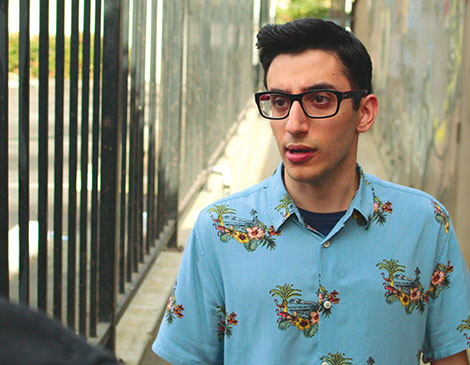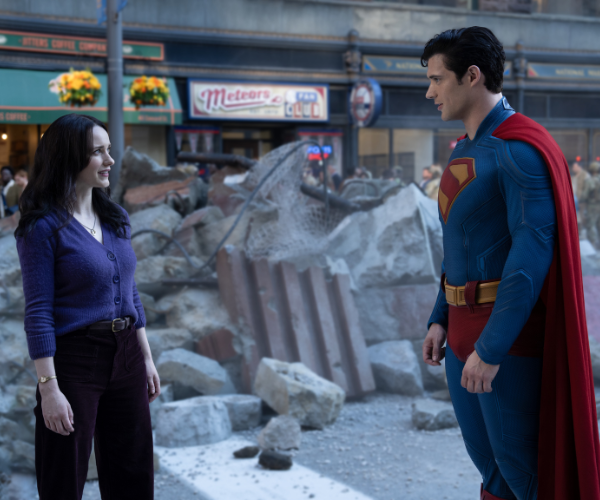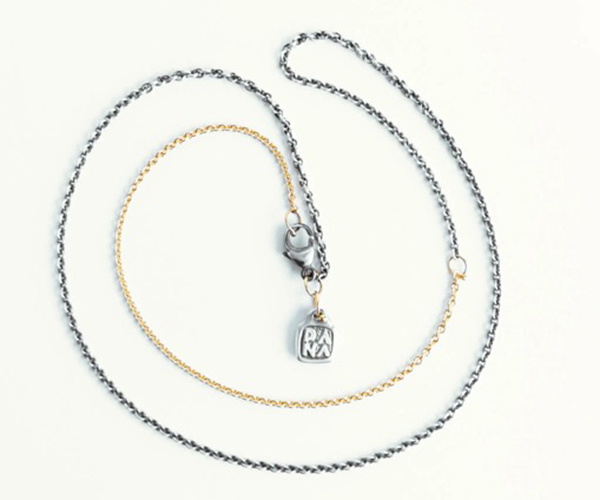When Ryan J. Haddad auditioned for the Cassidy Theatre’s 2010 production of Annie in Parma Heights, he thought they’d cast him as Franklin Delano Roosevelt.
The high school senior had cerebral palsy, and despite appearing in countless community theater and school productions since childhood, he was often cast in fatherly supporting roles, where his personal mobility device would “make sense.”
“Could everyone say this? No,” says Haddad, now 28. “But you get the sense when you walk in, and you’re left to wonder: Am I not getting this part because of my disability, or because of my actual talent, because I wasn’t the right fit?”
But he’d always loved Annie, even watching it as a child at the Allen Theatre, and he figured, go big and bald. He auditioned for Oliver Warbucks … and got the part.
“I’d been conditioned to modify what my dreams were,” says Haddad. “I thought I could only be a writer or director because there wasn’t room for me onstage. That role was the first seed of me thinking: Maybe I’m wrong. Maybe I underestimated myself and this industry.”
Now, Haddad has landed his biggest role to date as Andrew Cashman, a droll 18-year-old with a hidden agenda on Ryan Murphy’s campy high school dramedy The Politician. In the years since he belted “Tomorrow,” he’s crafted a career that expands to fit the scope of those dreams, embodying characters not solely defined by their disability.
It’s a quality he loves about Andrew, who drops a bombshell in the season premiere.
“That character was intentionally written to have cerebral palsy from the outset, but it isn’t the hallmark, it isn’t his motivation. My cerebral palsy isn’t a plot point in my life on a daily basis, it’s just part of who I am,” Haddad says, whose personal mobility device was substituted for the script’s motorized scooter after he was cast. “So, I think a character like Andrew, who only says he has cerebral palsy one time, I like that it’s based more in that truth.”
The role arrived three years after Haddad landed in New York City, freshly graduated from Ohio Wesleyan University. He began staging his Hi, Are You Single? an autobiographical comedic solo play he’d written as his OWU senior thesis project. It explores the protagonist’s struggle for intimacy as a gay, disabled man. He wrote it after a mentor advised he didn’t need to “wait for someone to write him a part.” Haddad would go on to stage the play in nine cities nationwide, including at Cleveland Play House in 2018, the same company that produced the first play he’d ever seen, The Red Shoes, at age 3.
“Many have never seen an authentically cast disabled person in a romantic scene, a love scene, a sex scene, meant to be charged and passionate,” says Haddad. “Because of that, I believe they don’t know that they have permission to view a disabled person as desirable or somebody that they might want to go on a date with, or go to bed with.”
Haddad’s work continues to explore these intersections of identity, whether on season 2 of The Politician (filming now), or in one of the four other productions he’s workshopping or performing. This month in New York, he stages his Falling For Make Believe, a cabaret about the “Haddad Theater,” a backyard acting troupe he enlisted his family to perform in as a child in Parma. Named a 2019 NYSCA/NYFA Artist Fellow, Haddad has written himself into a fresh, auspicious frontier.
“I would not have the opportunities I do today if I hadn’t started writing and performing my own work, putting myself front and center and taking ownership of my narrative,” says Haddad.




